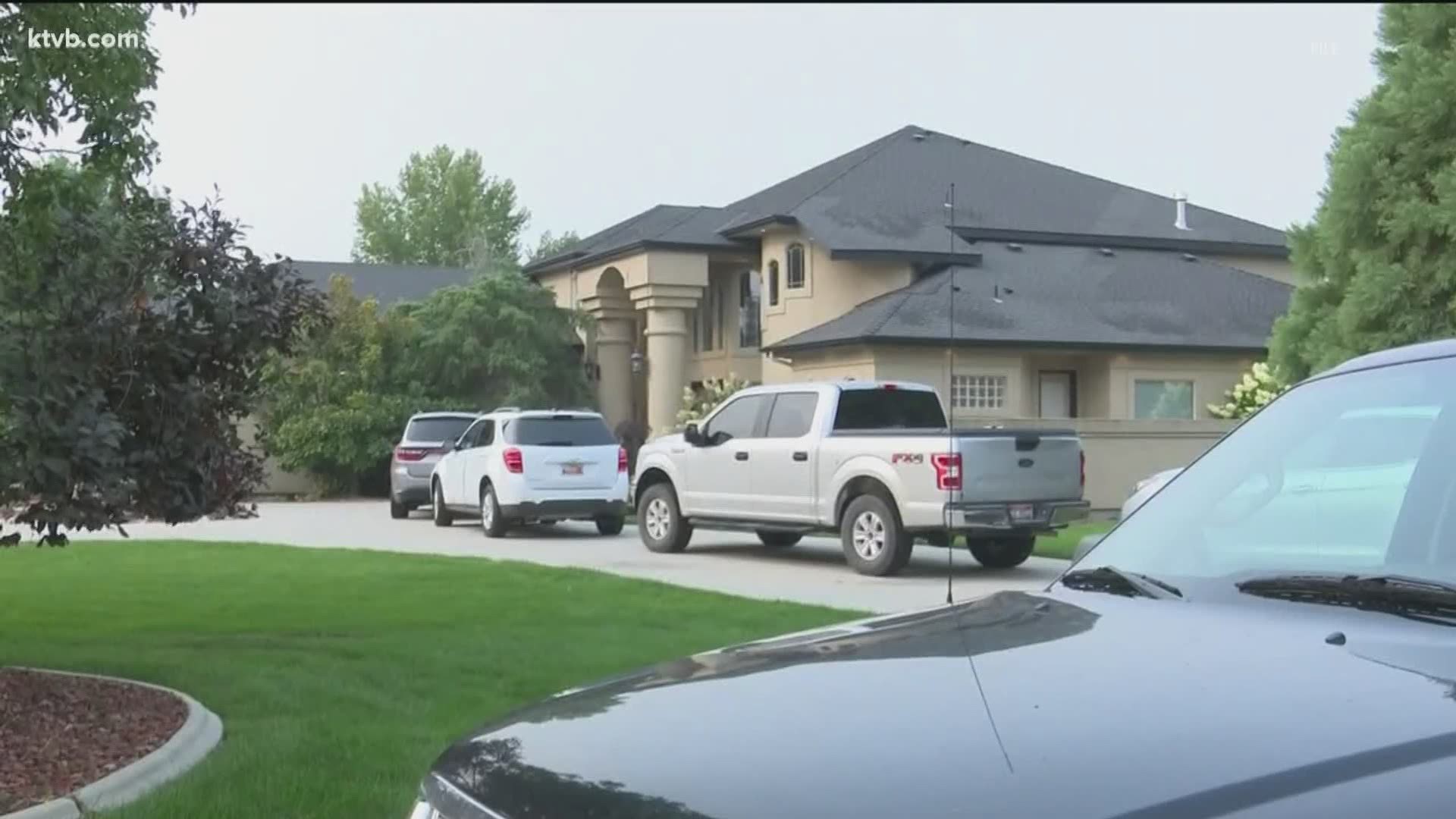BOISE, Idaho —
The group trial of a Treasure Valley family prosecutors say ripped off thousands of people in a multimillion-dollar counterfeit cellphone trafficking scheme began on Thursday.
Pavel Babichenko, Gennady Babichenko, Piotr Babichenko, Timofey Babichenko, Kristina Babichenko, Natalya Babichenko, Anna Iyerusalimets, Mikhail Iyerusalimets, and David Bibikov are charged with trafficking in counterfeit goods, mail fraud, wire fraud, money laundering and other felonies in the long-ranging case. All nine defendants are related by blood or marriage.
Federal investigators have said the Babichenko family's dealings were on their radar for a decade as part of a covert operation that relied on undercover buys, surveillance, and a confidential informant who walked into the suspects' Meridian warehouse with a hidden camera in his hat ahead of a massive 2018 raid that netted arrests and the seizure of thousands of packages containing counterfeit items.
Prosecutor Katherine Horwitz told jurors in her opening statement that the group used Amazon and eBay to sell fake Samsung and Apple cellphones, chargers, smartwatches and other electronic accessories to unsuspecting customers, touting the products as genuine.
Despite "hundreds of complaints" - misspelled words, a fake Apple logo that was peeling off, a charger that got so hot it burned a woman's hands - Horwitz said, the defendants continued to sell products they knew were not real.
Horwitz described a type of shell game in which the group deflected and lied to customers who complained, created fake invoices from Apple and Samsung, opened dozens of businesses connected to the conspiracy, and attached multiple bank accounts to each of them to get around their operation being permanently blocked by shutdowns or U.S. Customs seizures.
"The defendants dove into this market," the prosecutor said. "The sales generated millions, and that's why they did it. They lived in expensive homes, they drove expensive cars, and they laundered their money through their brother, Gennady Babichenko."
A forensic accountant who worked to unravel the thread of the defendants' finances reviewed thousands of pages of financial information, diving down "one rabbit hole after another," to eventually tracing a total of $125 million tied to the conspiracy, Horwitz said. The suspects also moved roughly $4 million dollars to Brazil in an attempt to obscure the money that was pouring in from the scheme, she said.
"That is money laundering," Horwitz told the jury.
But lawyers for the defendants argued that the defendants' intentions in Brazil were more celestial than criminal.
The family - 12 siblings and their parents - came to the U.S. in the mid-1980 from the then-Soviet Union fleeing religious persecution.
Jeffrey Brownson, lawyer for Gennady Babichenko, said his client and others in his family were working to pursue "a religious prophecy" that there would be "a mass migration of Slavic Pentacostals to Brazil." Gennady tried at first to get a missionary visa, his lawyer said, but after being told securing a business visa would be easier, he opened a construction company in Brazil, naming it Babichenko Construction.
"He named it after himself. He wasn't hiding anything," Brownson said.
Another attorney who represents Timofey Babichenko agreed.
"Brazil was not a crime scene, Brazil was a real religious community in the works," Rob Lewis told jurors.
The family's money in Brazil was put towards the construction of apartment buildings for low-income Braziailans as part of a government-backed housing program.
Several of the attorneys expressed concerns that all nine defendants would be lumped together, with evidence against one person bleeding into presuppositions against another.
"This case is about guilt by association, guilt by assumption," said Melissa Winberg. She represents Anna Iyerusalimets, who she said is "an afterthought" who ended up charged because she is married to one defendant and sister to several more. Anna Iyerusalimets, the youngest of the Babichenko siblings, was charged after her name was discovered one of the LLCs, despite her husband Michael taking full responsibility for the business. Federal investigators never even bothered to interview her client or pull her bank records, Winberg said.
Some attorneys claimed the electronics their clients sold were not counterfeit, or that it was a prosecutorial stretch to paint their work in the secondhand cellphone industry as outside the law. Others said their client was not involved at all, like Brownson, who told jurors that the dollars moving in and out of accounts controlled by Gennady Babichenko was not a sign of money laundering but instead evidence of the "generosity" with which the successful businessman offered loans to his family members, friends, and members of his community.
"If the government can do this to Gennady, they can do this to any of us," he warned.
Barry Flegenheimer also argued that there were "valid and legitimate" reasons behind his client Paul Babichenko moving money around.
"Money laundering is a crime, not money spending," Flegenheimer said. The purpose behind the transaction is what you have to focus on."
The trial is expected to last ten weeks and feature dozens of witnesses, including Arthur Pupko, a former employee and co-defendant of the Babichenko family who pleaded guilty in the case in 2019. Pupko told investigators that he skimmed 6% off the Amazon profits made from the sale of counterfeit electronics, then transferred the remaining money into an account controlled by members of the Babichenko family.
The trial is set to resume at 9 a.m. Friday.

